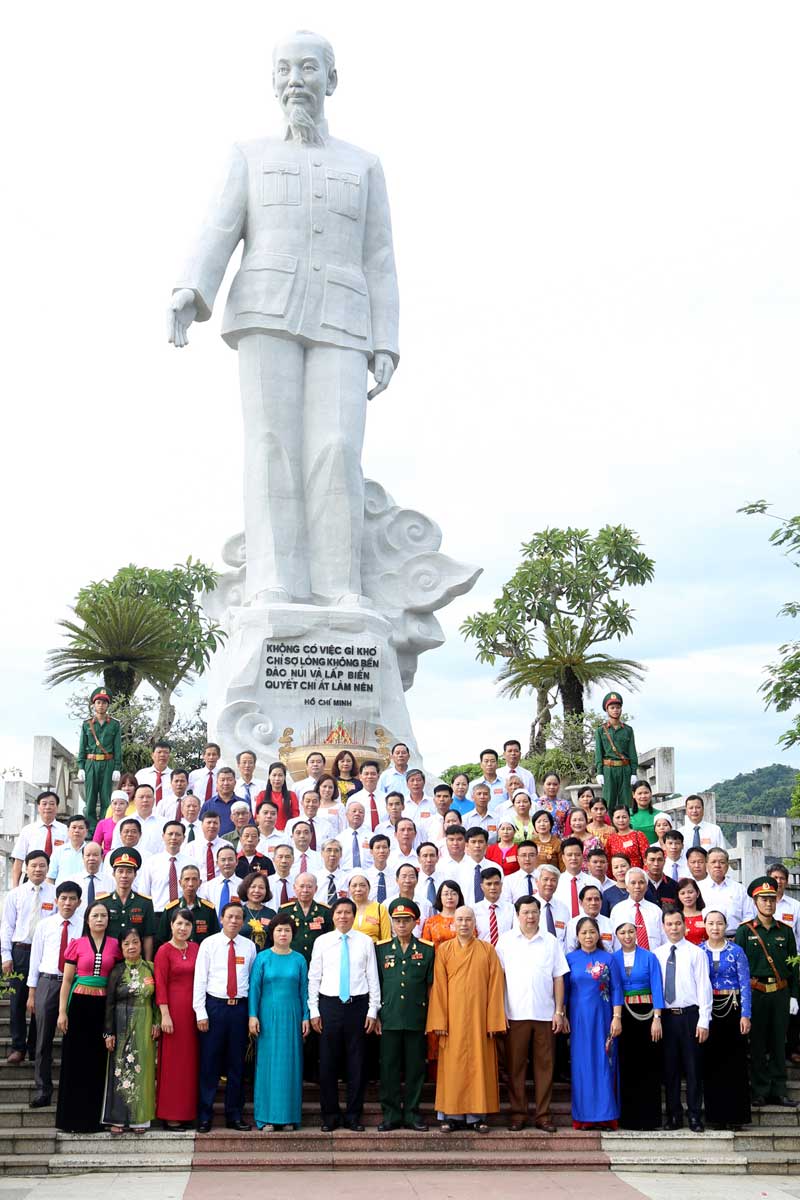
(HBO) – People of ethnic minority groups, accounting for 74.3 percent of the total population of Hoa Binh, mostly live in rural areas with difficult conditions. Therefore, over the years, the Party Committee and administration of Hoa Binh have paid great attention to promoting unity among ethnic groups and improving the living conditions of ethnic minority communities, considering it as a major task of the whole political system.
The provincial Party Committee, People’s Council and
People’s Committee have led and instruct all sectors, departments and the whole
political system to engage in addressing difficulties to enhance the material
and spiritual conditions of the community.
The provincial Party Committee, People’s Council and
People’s Committee have directed relevant agencies to coordinate and issue
documents to institutionalize and concretise policies and orientations of the
Party, State and the province on ethnic affairs, while assigning specific tasks
to each sector and agency in line with the realization of policies, programmes
and projects on socio-economic development.
Particularly, the province has directed localities to combine
funds of centrally-invested programmes and projects on ethnic community with
other financial resources to improve infrastructure system in ethnic areas,
with priority given to transport, irrigation, health care, education and
culture works.
At the same time, the province has invested greatly in science-technology
transfer programmes, projects and models to promote production in rural areas.
Notably, many agricultural production models have been
implemented with high economic efficiency, creating concentrated production
areas, helping create many major products in cultivation, breeding, and
forestry, contributing to boosting socio-economic growth and improve income for
locals.
Thanks to the programmes and projects, the infrastructure
system in ethnic minority areas of the province have been improved, changing
the face of mountainous areas, facilitating socio-economic development in especially
extremely difficult communes in the province.
More convenient transportation have made goods exchange and
travelling activities of the community easier, improving the material and
spiritual life of ethnic minority groups, contributing to preserving and
promoting the cultural identity of the groups.
Thanks to the direction and leadership of Party Committees
and administrations at all levels as well as the involvement of the whole
political system and efforts of ethnic minority people in getting rid of
poverty and building new-style rural area, per capita income in Hoa Binh’s
rural areas has reached 22 million VND per year. The poverty ratio among
households dropped to 14 percent in 2018, with reduction of 3-4 percent per
year on average.
The province has 82 out of its total 191 communes recognised
as new-style rural areas, 51 communes higher than that in 2015, completing the
target set by the province’s resolution one year ahead of schedule./.
Hoa Binh province is undergoing a dynamic transformation amid Vietnam’s national digital transition. Building on Poliburo’s Resolution No. 57-NQ/TW on breakthroughs in science, technology, innovation, and national digital transformation, the province has rolled out a wide range of practical action plans. A standout initiative is the "Digital Literacy for All” movement, an effort to ensure that no one is left behind in the digital era.
Hoa Binh province is undergoing a dynamic transformation in the wake of the national digital transformation movement. Building on Resolution No. 57-NQ/TW of the Politburo on breakthroughs in science, technology, innovation, and national digital transformation, the province has implemented a wide range of practical action plans. A standout initiative is the "Digital Literacy for All” movement ambitious effort to ensure that no one is left behind in the digital age.
With a spirit of unity and proactive problem-solving, the Party Committee, the government and the people of Dong Lai Commune (Tan Lac District) have made great strides in implementing the resolutions of the 24th Party Congress of the commune for the 2020 - 2025 term. Focusing on leadership and practical actions, the commune has brought the Party’s resolutions into daily life, creating strong impacts and pushing the local development forward.
Amid the nationwide push for digital transformation, young people in Hoa Binh Province are stepping up as dynamic pioneers, applying technology to enhance Youth Union operations and expand the reach of youth-led initiatives. Through creativity and adaptability, Youth Union organizations at all levels have introduced a series of practical solutions, contributing to modern governance and community development.
In recent years, An Nghia commune, located in Lac Son district, has stepped up administrative reform, focusing on improving the quality and efficiency of its single-window service unit for receiving and processing administrative procedures. These improvements have helped create favourable conditions for local residents and organisations to handle administrative procedures, contributing to the commune’s broader socio-economic development.
The Prime Minister-approved master plan to develop the multi-use value of forests ecosystems through 2030, with a vision to 2050, aims to improve the management and sustainable use of forest resources, create jobs, increase incomes, and improve the living standards of ethnic minorities, people in mountainous and remote areas, forest workers and those living near forests.



